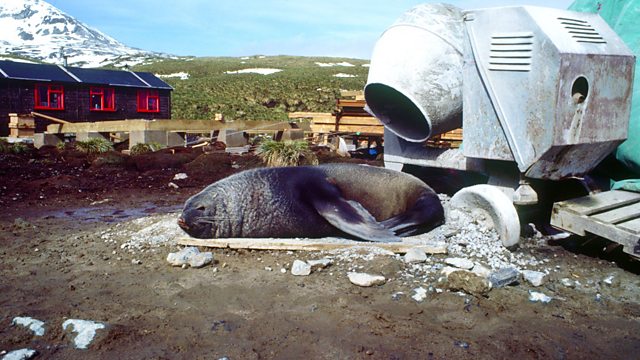Noise in the Environment
Does human-produced noise remove us from the natural world? Monty Don explores this question through the difficulty of hearing natural sounds in the countryside.
Before the arrival of the Industrial Revolution in the 18th Century many believe the planet was largely a silent place. However what this overlooks is that the natural world is an incredibly noisy environment as species communicate between each other sometimes over vast distances. What has changed is that from around 1800 one species on the planet is arguably losing its ability to hear the presence of natural sound, and that species is Homo sapiens. Today the amount of anthropogenic noise 7 billion people produce across this planet is for many resulting in a disconnection with our natural neighbours and an inability to experience silence. If we can no longer hear the natural world, are we possibly becoming disconnected from everything around us? Monty Don explores this question through the difficulty of hearing natural sounds in the countryside without the interference of human noise.
Producer : Andrew Dawes.
Last on
More episodes
Previous
Hildegard Westerkamp

Hildegard Westerkamp is a composer who focuses on listening, environmental sound and acoustic ecology.Ìý For an extensive exploration into her compositional work see the dissertation 'Andra McCartney’s Sounding Places: Situated Conversations through the Soundscape Work of Hildegard Westerkamp' - download .
Ìý
Hildegard was a researcher for R. Murray Schafer's World Soundscape Project, is a founding and board member of the World Forum for Acoustic Ecology (WFAE) and until recently was editor-in-chief of its journal Soundscape. She has taught courses in Acoustic Communication at Simon Fraser University with colleague Barry Truax; and has conducted soundscape workshops and given concerts and lectures internationally. As part of Vancouver New Music’s yearly season she - together with members of The Vancouver Soundwalk Collective - has coordinated and led Soundwalks since 2003. Some of her compositional work appears in US filmmaker Gus van Sants’ films Elephant and Last Days.
Bernie Krause

Since 1968, Bernie Krause has travelled the world recording and archiving the sounds of creatures and environments large and small. Working at the research sites of Jane Goodall (Gombe, Tanzania), Biruté Galdikas (Camp Leakey, Borneo), and Dian Fossey (Karisoke, Rwanda), he identified the concept of biophony based on the relationships of individual creatures to the total biological soundscape as each establishes frequency and/or temporal bandwidth within a given habitat.Ìý His contributions helped establish the foundation of a new bio-acoustic discipline: soundscape ecology.
Ìý
Krause has produced over 50 natural soundscape CDs in addition to the design of interactive, non-redundant environmental sound sculptures for museums and other public spaces throughout the world.Ìý His installations can be experienced at the National Museum of Natural History (Smithsonian Institution, Washington, DC), the California Academy of Sciences (SF), the Houston Museum of Natural Science, the Chicago Science Museum, the American Museum of Natural History (NYC), five special commissions at the World Financial Center (NYC that performed October/November 2006) and over 30 other venues in N. America and Europe.Ìý During his life as a professional studio musician, Krause earned the Pete Seeger slot in the Weavers (1963), and with his late music partner, Paul Beaver, introduced the Moog synthesizer to pop music and film. The team’s work can be heard on over 250 albums and 135 feature films including Apocalypse Now, Rosemary’s Baby, Shipping News, and Castaway.
Ìý
Krause, who holds a PhD in Creative Arts with an internship in Bioacoustics, was a key figure in implementing natural soundscapes as a resource for the U. S. National Park Service. In 2006, under the auspices of US Fish & Wildlife, the Calgary Zoo, Google, Stanford, Harvard Universities, the University of Utah, and several other institutions, he led three teams to capture the first natural soundscape examples ever recorded in the Arctic National Wildlife Refuge.Ìý Krause has served as an adjunct professor on the graduate faculty of Purdue University.
Dr Andy Radford

Broadcasts
- Tue 17 Dec 2013 11:00Â鶹ԼÅÄ Radio 4
- Mon 23 Dec 2013 21:00Â鶹ԼÅÄ Radio 4
Learn about habitats with The Open University
Explore the twists and connections of natural life in four different UK habitats.

